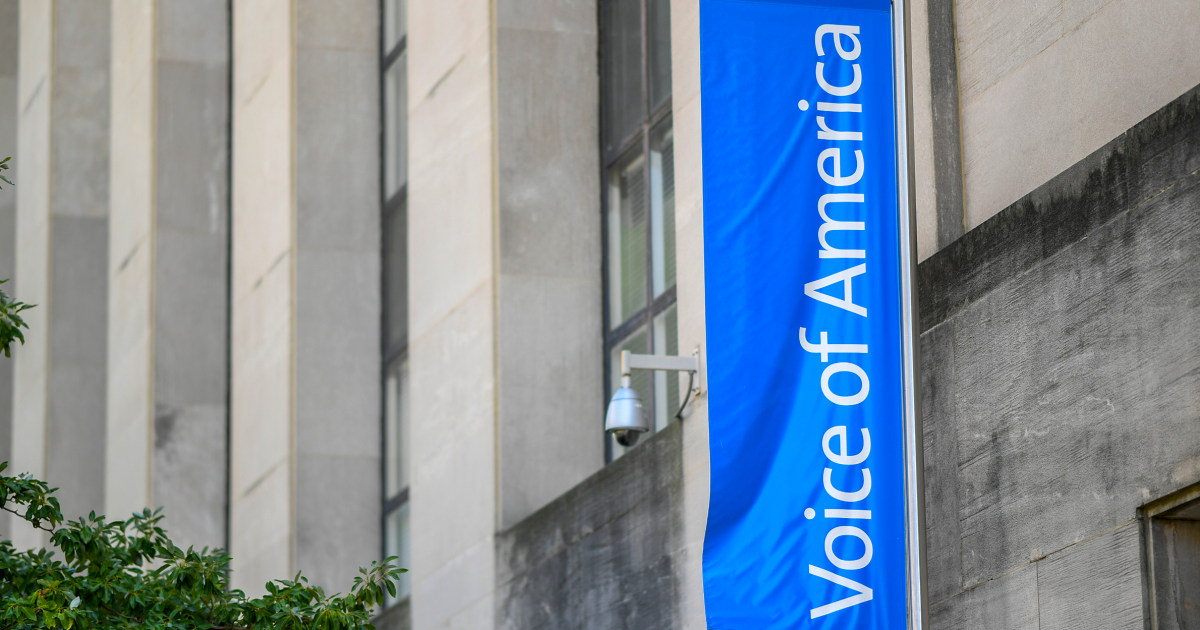Unpacking Trump’s Controversial Move: The Future of Voice of America and Beyond
In a surprising turn of events, President Trump has signed an executive order aimed at restructuring Voice of America (VOA) and other key agencies, igniting a firestorm of debate around journalistic integrity and the future of public broadcasting in America. This decision has not only raised eyebrows but also sparked vital conversations about the role of government in media and the implications for free speech. In this article, we will unpack the details of this controversial move, examine its potential impacts, and explore what it means for the future of public broadcasting.
Understanding the Executive Order
The executive order signed by President Trump calls for a comprehensive overhaul of the Voice of America, which has long been considered a beacon of impartial news reporting, particularly in regions where freedom of the press is under threat. Established in 1942, VOA has aimed to provide accurate and objective news to audiences both domestically and internationally, fostering understanding between America and the world.
The executive order outlines several key changes, including:
- A review of the agency’s leadership structure.
- Potential shifts in funding and resources.
- Greater oversight from the federal government.
Supporters of the move argue that it is necessary to ensure that public broadcasting aligns with the administration’s vision and priorities. Critics, however, see it as an attempt to politicize an agency that has traditionally operated independently, undermining its credibility and the cornerstone principles of journalism.
The Historical Context of Voice of America
To fully grasp the significance of Trump’s executive order, it’s essential to examine the historical context of Voice of America. Founded during World War II, VOA was created to counter misinformation and provide truthful news to audiences behind enemy lines. Over the decades, it has evolved to serve as a crucial platform for free expression, particularly in authoritarian regimes.
VOA operates under the mandate to disseminate news that is accurate, objective, and comprehensive. This mission has garnered respect and trust among global audiences. However, the current political landscape has raised questions about whether this mission can continue unaffected under new government oversight.
The Implications for Journalistic Integrity
One of the most pressing concerns regarding Trump’s restructuring of Voice of America is the potential impact on journalistic integrity. The freedom of the press is a fundamental tenet of democracy, and any perceived influence from the government can lead to skepticism about the impartiality of reporting.
Journalists at VOA and similar agencies may find themselves in a precarious position. If the executive order leads to increased government oversight, reporters may feel pressured to align their reporting with the administration’s narrative, potentially sacrificing the objectivity that has long been a hallmark of public broadcasting.
A Broader Perspective: The Future of Public Broadcasting
The implications of Trump’s executive order extend beyond Voice of America. Other public broadcasting entities could also face similar scrutiny and restructuring. The landscape of public broadcasting in America is already fraught with challenges; funding cuts, competition from private media, and changing audience habits have all shaped the way these organizations operate.
Some experts argue that public broadcasting plays an essential role in a healthy democracy, providing a platform for diverse voices and fostering informed citizenry. However, the current political climate raises questions about whether these institutions can maintain their independence in the face of government influence.
Potential Consequences of Restructuring
The potential consequences of restructuring Voice of America and other public broadcasting agencies are multifaceted:
- Loss of Credibility: If the public perceives that VOA is no longer an independent source of news, its credibility could be severely undermined.
- Impact on Audience Reach: As trust in the agency declines, audiences may seek news from alternative sources, further fragmenting the media landscape.
- Increased Polarization: The politicization of public broadcasting could exacerbate divisions among the public, leading to a more polarized media environment.
- International Relations: As Voice of America serves as a conduit of American values globally, changes in its operation could affect how America is perceived abroad.
Public Response and Advocacy
The public response to Trump’s executive order has been mixed. Advocacy groups, journalists, and media experts have rallied to defend the independence of Voice of America and similar agencies. Organizations such as the Committee to Protect Journalists and the American Civil Liberties Union have voiced strong objections, emphasizing the importance of an independent press in a democratic society.
Public forums and discussions have emerged, allowing citizens to express their concerns and engage in dialogue about the future of public broadcasting. Many emphasize that any attempt to undermine the agency’s independence poses a threat not just to VOA, but to the very fabric of American democracy.
Looking Ahead: Pathways for Reform
As the dust settles from this controversial move, it’s crucial to consider potential pathways for reform that could protect the integrity of Voice of America and other public broadcasting entities. Here are a few considerations:
- Strengthening Oversight Boards: Establishing independent oversight boards could help ensure that public broadcasting remains free from political influence.
- Fostering Public Engagement: Encouraging community involvement in programming and decision-making could enhance accountability and transparency.
- Advocating for Funding Stability: Securing stable funding sources that are insulated from political pressures can help maintain the independence of public broadcasting.
Conclusion
Trump’s controversial move to restructure Voice of America has opened a Pandora’s box of discussions about the future of journalism and public broadcasting in America. As we navigate this complex landscape, it is imperative to remain vigilant about the principles of freedom of the press and journalistic integrity. The future of Voice of America and other public broadcasting agencies hangs in the balance, and it is up to citizens, advocates, and policymakers to ensure that these institutions can continue to serve as a voice of truth and a pillar of democracy.
See more BBC Express News

